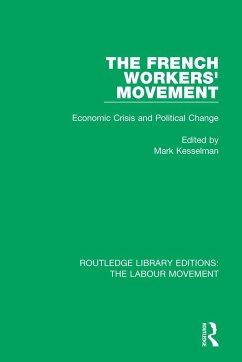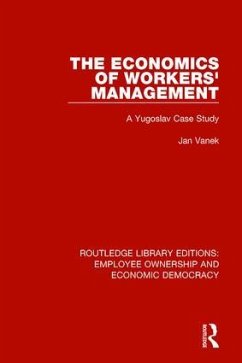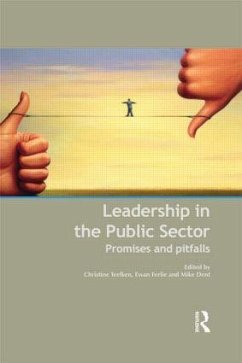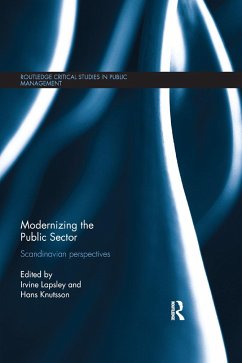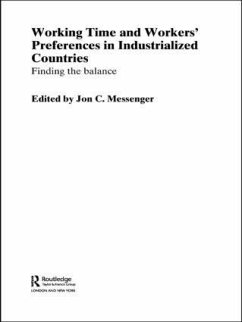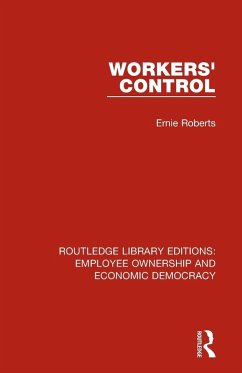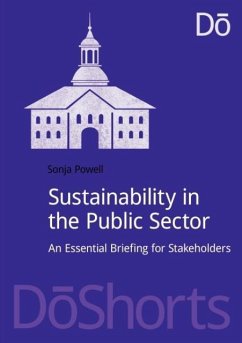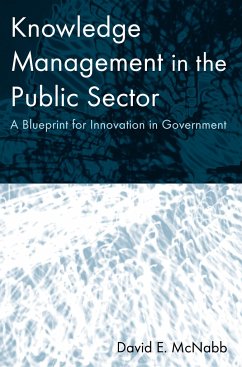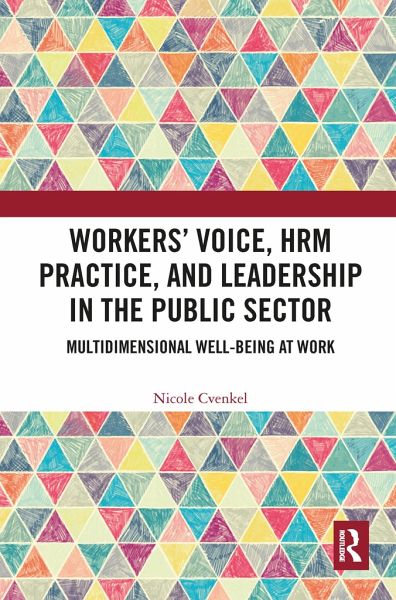
Workers' Voice, HRM Practice, and Leadership in the Public Sector
Multidimensional Well-Being at Work
Versandkostenfrei!
Versandfertig in 1-2 Wochen
56,99 €
inkl. MwSt.
Weitere Ausgaben:

PAYBACK Punkte
28 °P sammeln!
Much is talked and written about well-being in the workplace, but many wonder whether 'putting people first' is just a facade and that were it not for employment legislation, union representation and the high profile of human rights issues, employers would regard employees as a necessary burdensome financial evil, as in days gone by. Some scholarly research has focused on the reactions of employees to the quality of working life and well-being at work and much of this suggests high levels of dissatisfaction, disaffection and disengagement. In Workers' Voice, HRM Practice, and Leadership in the...
Much is talked and written about well-being in the workplace, but many wonder whether 'putting people first' is just a facade and that were it not for employment legislation, union representation and the high profile of human rights issues, employers would regard employees as a necessary burdensome financial evil, as in days gone by. Some scholarly research has focused on the reactions of employees to the quality of working life and well-being at work and much of this suggests high levels of dissatisfaction, disaffection and disengagement. In Workers' Voice, HRM Practice, and Leadership in the Public Sector: Multidimensional Well-Being at Work, Nicole Cvenkel avers that whilst it is known that public sector employees are even less satisfied than those in the private sector, there has been very little research into the effects of working life experiences on employee well-being in public sector organisations. There is even some doubt about whether a well-being philosophy that can be applied in the private sector can readily be extended to the public sector. The push towards New Public Management (NPM) means organisations continue to undergo significant reform processes around efficiency, costs and public service delivery. All these changes place additional demands on public sector employees who are at times also subject to intensive scrutiny by stakeholder groups, who may regard the recourse to well-being initiatives as a poor use of public funds. The author has researched in the UK local government sector and that is the setting for the debate in this book, about whether and how an employee well-being ideology can be successfully promoted and maintained in an NPM environment, given continuous reform and expenditure reduction. In a local government case organisation, the author has researched, limited resources, reduction in budgets, redundancies, increased workloads, lack of trust, and the existence of a 'controlled' working environment were all found to be central to a climate of bullying and unfairness. Although the organisation was committed to the adoption of HRM 'best practice' and initiatives geared towards promoting employees well-being, employees still believed they were being bullied and treated unfairly. It was found that different perspectives on the psychological contract, fairness, and bullying at work were highlighted by managerial and non-managerial employees. The author's conclusions contribute to a clearer understanding than hitherto of workers' voice in relation to work, leader-member exchanges, and well-being in the public sector and she offers a model depicting employees' understanding of what their quality of working life, line manager's leadership and well-being should be, that might be used by organisational leaders, researchers, policy makers, Human Resources managers and other practitioners and consultants, to move towards a more holistic, multidimensional, well-being at work paradigm.






